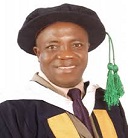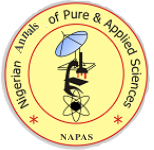Editorial Comments
Vol. 4 Issue 2
Pesticides, Plastics, Professors and Politicians
There are several issues of concern that have been identified but still represent major threats to human and environmental health. There is an unprecedented increase in the usage and disposal of extremely stable and non-degradable group of chemicals into the environment. Another emerging concern is widespread use of large and diverse group of endocrine disrupting chemical (EDCs), which interfere with the hormonal system of humans and animals. EDCs cause many diseases, including diabetes, obesity, weaker immune responses and, as a great concern now, decreasing sperm count in men (Martin Scheringer, 2019). Other issues that warrant global action include the extreme (and increasing) levels of plastic pollution and e-waste (i.e. all the obsolete electric and electronic devices that are shipped from Europe and North America to African countries). Chemicals that harm humans and the environment include those we use as pesticides and metals from our digital devices and electric car batteries. There are currently little alternatives in the usage of these materials. However, scientific research has continued to propose sustainable usage of plastics and pesticides with little policy and political backing. Extreme pollution of the planet by plastics, electronic waste and pesticides is causing extensive damage to human health and the environment. Collaboration between science and politics has hitherto not been conducive to yield any sustainable goal. Consequently, scientists estimate that by 2030, the exposure to commonly used chemicals would be a contributing factor in over five million premature deaths around the world.The main problem is that science professors in Nigeria and other Sub-Saharan countries in Africa and politicians work and live in two different worlds, they use different ways of speaking, have different incentives for their work and also different goals. Their work takes place on different time scales and has different audiences. Normally, their worlds have little, if any, overlap. Therefore, it is very easy that misunderstandings happen when scientists and politicians interact. Communication experts have maintained that the gap that exist between science professors and politicians in Africa is not a failure of anybody, but just a consequence of the very different “environments” in which they both operate. The incompatibilities between science professors and politicians are very real ones. If scientists and politicians who are policy makers are to work together, they must know each other's strengths and weaknesses, as well as likes and dislikes. There are a number of key issues that must therefore be addressed. Scientists and politicians often lack trust and respect for the respective parts that they play. Scientists have a lack of respect for those who are not scientists (science is an exclusive club), and scientists live in a culture that reveres scientific ideals. They often consider their research to be cutting edge, to be reviewed only by their peers. They resent the power of politicians to control research funding and the frequent misuse that is made of scientific data to fulfil a political policy agenda. On the other hand, politicians resent the arrogance of scientists and the seeming self fulfilment of much of their research, they often view scientific input as untimely, less than relevant, and impossible to understand or apply findings.
Another aspect to this professors and politicians dichotomy is in the public image. Scientists are often respected as “wise people” and free from political and economic interests. Politicians are often regarded as “powerful people”, but not necessarily respected. The list goes on and the incompatibilities seem to be growing. It is not that either scientists or politicians are “wrong” or “bad”. One responds to scientific rationality, while the other responds to political rationality. This uneasy relationship between science and politics continues, especially as budget allocated to research has continued to dwindle in most of parts of the world arising from responses to the COVID-19 pandemic. At the same time, budget for political processes and rehabilitation of political institution continue to rise in Nigeria and other developing countries.
While the lack of cooperation between scientist and policy makers persist, indiscriminate disposal of plastics and unregulated application of pesticides will continue to wreck irreversible havoc to the environment. Science professors will continue to publish evidence-based research findings on the negative impact of plastics and pesticides on human ecosystem with little action to remediate the consequences. The position of the Editorial Board of Nigerian Annals of Pure and Applied Sciences is that scientists must continue to reach out to politicians as part of scientific research ethic to use science in the improvement of human and the environment. Strategies to improve communication between scientists and politicians need to become a critical aspect of application of research findings through advocacy and positive lobbying. Policy makers control the process of allocation of funds and scientific budget, they are also in a better position to influence laws controlling disposal of plastics and regulating the use of pesticides. Science must therefore activate her responsibility to reach-out to the ones that has the funds and makes the law. Like they say in Africa, 'the one that holds the knife and the yam determine who eats or go home hungry'.
For the sake of relinquishing a healthy planet for future generation, especially in relation to plastic and pesticides pollution, science professors and politicians must urgently find a common ground before irreversible damage is done. The prevailing mistrust must be conquered with persuasive reasoning and collective action. Professors and politicians need to collectively resist efforts in turning Africa and her water resources into the continent's refuse dump. Nigerian scientific community needs to become relentless in her efforts to bring politicians into her processes in order to build a robust partnership for the benefit of all stakeholders. The Nigerian Annals of Pure and Applied Sciences is playing an important role in bridging the communication gap between science and politics. The editorial Board is encouraging articles that would help in bringing policy makers and researchers together in combating chemical waste.
This article is not intended to blame anybody but to once again stress the need for science professors and politicians in Nigeria to create an enabling environment for regular communication in order to prevent the impending environmental and health catastrophe.
PROFESSOR E.A OMUDU fesn, fppsn
Editor-in-Chief


 Contact Us
Contact Us Editorial Team
Editorial Team Join As A Reviewer
Join As A Reviewer  Request For Print Copy
Request For Print Copy


 Cprint Publishers
Cprint Publishers